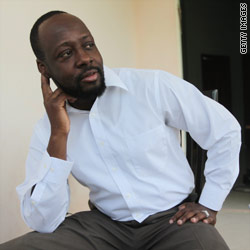
by Dr. Julianne Malveaux, President – Bennett College
Only one in four young black men graduates from high school in Detroit. The rest are lost and left out, swallowed by a city where urban blight, industrial desertion, and educational failure define daily life. Detroit is ground zero, exemplifying the absolute worst of urban life. It had a passionate champion in Congresswoman Carolyn Cheeks Kilpatrick, who recently lost her bid for reelection. But as passionate as Cheeks Kilpatrick and Senator Debbie Stabenow have been about Detroit, this is a city that won't bounce back without revolutionary intervention.
Government has intervened for Detroit, bailing out General Motors (now Government Motors) to the tune of billions of dollars. The bailout has yet to trickle down. Instead, we have seen schools closed, hours curtailed, and a man who is more bureaucrat than educator placed in charge of that city's educational system. Across the nation, millions of students are going back to school. What are they going back to in cities like Detroit? With budget cuts defining everything that is done, are they going back to fewer hours, broke down schools, and chaos? In going back, are they being embraced or repelled by those city administrators who place a higher priority on balancing budgets than educating young people.
The Massachusetts-based Schott Foundation has released a report that speaks to the ways that so many states are failing black male students. Michigan's black male graduation rate, at 47 percent, is at the US average, and higher than the rate in Mississippi, North Carolina, Nevada, Hawaii, Georgia, Alabama, Indiana, DC, Ohio, Nebraska, Louisiana, South Carolina, Florida and New York. New York's rate is an abysmal and frightening 25 percent. Aaaugh. Inner cities in several states do extremely poorly, like Detroit. The Schott Foundation report ought to raise alarm among educators and policy makers and raise questions about the work we must do to properly focus on African American students, male and female.
This week, Rev. Jesse Jackson has taken his team on the road to the state of Michigan, with stops in Kalamazoo, Grand Rapids, Flint, Lansing and Detroit. The purpose is to lead up to a Saturday march for Jobs, Peace and Justice, 37 years after Dr. Martin Luther King's pivotal March on Washington. It is so appropriate that Rev. Jackson is taking it to Detroit, with the help of allies in the labor movement and the civil rights movement. Indeed, to go to ground zero reminds us how important Detroit has been for working class African Americans, and how many ways those who were willing to work were once embraced in a manufacturing economy. Now, willing workers, in the millions, languish waiting for opportunities, while we have exported them in our global economy.
Those who are unemployed are unable to support themselves. How many underwater mortgages are there in Detroit? Who much abandoned housing? Which services have been curtailed because the city simply can't afford to provide for seniors, children, library users, hungry people, all of that? The deindustrialization of Detroit has led to a colossal urban crisis, and government stimulus has simply bypassed that city. It is important and exciting to gather in Detroit on august 28, both in commemoration of Dr. King's 1963 march, and in recognition of the fact that politics and policy are both local and global.
What would happen if the Obama administration were as kind to Detroit as it has been to automakers? What would happen if someone decided to make Detroit a "model city" and to see how government programs could not only improve lives in a city described as "ground zero" but also model work in other cities? What would happen if there were a renaissance and rebirth in Detroit, one that presaged other urban renewals?
Once upon a time, urban renewal meant black folk removal. Now, the revival of cities will necessarily improve African American economic fortunes. When Rev. Jesse Jackson and thousands of others march in Detroit they spotlight one of our nation's urban failures. The spotlight must be followed by a focused effort to turn this failure into success. If Detroit can rise up out of its ashes, increasing graduation rates, entrepreneurial engagement, industrial development, and social service efficiency, so can every other challenged American city.




























